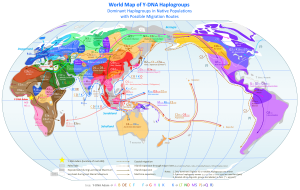Jul
29
2016
 We are currently in a transition period from an economy based largely on fossil fuels to one based largely on renewable or carbon-neutral fuels. Even if we put aside the question of global warming, there are many good reasons to make this transition. Fossil fuel pollution results in billions of dollars of health care costs and lost productivity each year. For any nation, the ability to create more of their own fuel and be less dependent on oil imports can have economic benefits.
We are currently in a transition period from an economy based largely on fossil fuels to one based largely on renewable or carbon-neutral fuels. Even if we put aside the question of global warming, there are many good reasons to make this transition. Fossil fuel pollution results in billions of dollars of health care costs and lost productivity each year. For any nation, the ability to create more of their own fuel and be less dependent on oil imports can have economic benefits.
Of course, if you accept the scientific consensus on anthropogenic global warming, we may just avoid some unwanted consequences of dumping billions of tons of previously sequestered carbon back into the atmosphere (40 billion tons in 2015 alone).
One interesting technology is often called an artificial leaf, because it uses light energy not to generate electricity directly (photovoltaics) but to synthesize fuel or fuel precursors from carbon dioxide in the atmosphere and other inputs (photosynthesis).
Photosynthesis is what plants do, hence the term “artificial leaf.” Plants use this process to make food in the form of carbohydrates from carbon dioxide and water, releasing oxygen in the process.
Continue Reading »
Jul
26
2016
 A recent article by Spenser Davis details how Alex Jones uses his conspiracy mongering to sell conspiracy-themed supplements and products. This phenomenon goes way past Alex Jones. This post from Destroyed by Science lists a few of the more popular websites that combine conspiracy theories and dubious supplements and other products.
A recent article by Spenser Davis details how Alex Jones uses his conspiracy mongering to sell conspiracy-themed supplements and products. This phenomenon goes way past Alex Jones. This post from Destroyed by Science lists a few of the more popular websites that combine conspiracy theories and dubious supplements and other products.
In my opinion, Jones pales in comparison to Natural News. This online empire closely connects conspiracies about medicine and the government with specific alternative health products and supplements.
The marriage of conspiracy theories and selling snake oil and pseudoscience is an obvious one. My question, however, is in which direction does the arrow of causation go?
Springtime for Charlatans
Pseudoscience, scientific illiteracy in general, and conspiracy thinking are goldmines for the sellers of dubious products. Think about it – what better potential customer is there than someone who is willing to believe fantastical claims does not require claims to even be scientifically plausible, let alone supported by solid science, and is skeptical of the regulatory system designed to protect consumers from fraud?
Continue Reading »
Jul
25
2016
 In 1950 Alan Turing, as a thought experiment, considered a test for telling the difference between a human and an artificial intelligence (AI). If a person had an extensive conversation with the AI and could not tell them apart from a real person, then that would be a good indication that the AI had human-like intelligence.
In 1950 Alan Turing, as a thought experiment, considered a test for telling the difference between a human and an artificial intelligence (AI). If a person had an extensive conversation with the AI and could not tell them apart from a real person, then that would be a good indication that the AI had human-like intelligence.
This process became known as the Turing Test, and every year various groups administer their version of the Turing Test to AI contestants. The test has limits, however, and is generally considered to be too easy. It is also dependent on the skills of the human questioner.
Parsing Language
A recent AI contest used a different approach, the Winograd Schema Challenge (WSC).This is one of many alternatives to the Turing Test that are being explored. Here is the format of the challenge:
- Two entities or sets of entities, not necessarily people or sentient beings, are mentioned in the sentences by noun phrases.
- A pronoun or possessive adjective is used to reference one of the parties (of the right sort so it can refer to either party).
- The question involves determining the referent of the pronoun.
- There is a special word that is mentioned in the sentence and possibly the question. When replaced with an alternate word, the answer changes although the question still makes sense (e.g., in the above examples, “big” can be changed to “small”; “feared” can be changed to “advocated”.)
Continue Reading »
Jul
22
2016
 Is Pluto a planet or a dwarf planet? Are these two categories even meaningful? The reality is that objects orbiting our sun occur on a continuum from asteroids to planetoids, dwarf planets, and full planets.
Is Pluto a planet or a dwarf planet? Are these two categories even meaningful? The reality is that objects orbiting our sun occur on a continuum from asteroids to planetoids, dwarf planets, and full planets.
Humans like to categorize, however. It helps us wrap our minds around complexity, gives us convenient labels to help sort our knowledge, and hopefully the categories reflect some underlying reality.
Categories often begin as purely observational. We label diseases by what they look like (their signs and symptoms), and then later may have to recategorize them once we know what causes the diseases.
Prior to Darwin, taxonomists categorized all of life according to superficial characteristics. These categories sometimes, but not always, matched the underlying reality of evolutionary relationships. We now have a different system of taxonomy called cladistics, which is purely evolutionary. That’s why birds are now dinosaurs. Continue Reading »
Jul
21
2016

Genuine mysteries in science are fascinating, and there is no shortage of them. Scientists love mysteries because that is where the work is.
Two of the biggest scientific mysteries of our generation have similar names – dark matter and dark energy. Their names imply the unknown. They are, in fact, place-holder concepts that are temporarily representing what we don’t know. However, we are slowly crawling toward an understanding of what they are.
Dark energy makes up about 70% of the mass/energy of the universe, while dark matter makes up another 25%, leaving just 5% for ordinary matter and energy. This means we currently don’t know what 95% of the universe is made of.
Fritz Zwicky first proposed the existence of dark matter in 1933, but his ideas were not accepted until the 1970s when they were revived by two astronomers, Vera S. Rubin and W. Kent Ford Jr. The hypothesis derives from the observation of how galaxies rotate. Their rate of rotation depends upon the amount of matter they contain – the more mass that exists within the orbit of any particular star, the faster that star will revolve about that galaxy. You can therefore estimate the amount of mass in a galaxy by observing how fast the stars are moving.
Continue Reading »
Jul
19
2016
 Adnan Oktar, who writes under the pen name of Harun Yahya, is an Islamic creationist. He has written several books and his articles now infect the internet.
Adnan Oktar, who writes under the pen name of Harun Yahya, is an Islamic creationist. He has written several books and his articles now infect the internet.
His arguments are essentially the same as Christian creationists, which raises the question of whether or not he developed them independently or he simply read Christian creationist texts. He references Duane Gish and other similar sources, so it seems that at least to some extent the similarity is through direct copying.
Some of the similarity may also be due to the fact that he is following a similar process, which can best be summarized as “making shit up.” He also likes to quote scientists out of context, a technique he seems to have borrowed from his Christian counterparts.
I also find it very familiar in that he presents himself as an intellectual and yet is breathtakingly ignorant of his subject matter. He appears to have learned about evolution from what Stephen J. Gould characterized as, “secondary hostile sources.” The result is that he tilts at rather simplistic “strawmen,” and never comes close to modern evolutionary theory, which escapes his attacks unscathed. Let’s take a look.
Continue Reading »
Jul
18
2016
 I am passionate about science and critical thinking. I believe these to be the best tools humans have for understanding the universe and tackling the challenges that face us. This is why I am a science communicator and skeptical activist.
I am passionate about science and critical thinking. I believe these to be the best tools humans have for understanding the universe and tackling the challenges that face us. This is why I am a science communicator and skeptical activist.
Part of this passion is that blatant anti-science, credulity, and fraud are genuinely upsetting. Homeopathic potions are approved drugs, the medical profession is soft on pseudoscience as long at it is presented in flowery language, some people want to teach their religious beliefs as science in the public schools, pseudoscience in the courtroom leads directly to injustice, and there are organized and well-funded groups who are rabidly opposed to safe and effective technologies because of irrational fears.
Some of the forces behind irrationality and pseudoscience in our world are straight-up con artists. They are exploiting scientific illiteracy and lax regulations to knowingly defraud people. Many think they are just being slick marketers, and this is how business is done. Or, they are scientifically illiterate themselves and they actually think the pseudoscience they are selling is legitimate.
Many, however, mean well but are trapped inside their own ideology. They are equally passionate, perhaps even more so, about their issue. They feel they need to do everything they can to oppose what they see as an evil in the world (vaccines, fluoride, GMOs, mainstream medicine, evolution, etc.). This justifies in their minds some extreme tactics, such as harassing scientists, slandering their opponents, vandalizing scientific experiments, or lying when necessary. Some of them become extremely nasty people as a result.
This, of course, only serves to fuel the passion of the science advocates.
Continue Reading »
Jul
15
2016
 This past week my daughters were running around the neighborhood with their iPhones trying to capture virtual creatures. They weren’t alone – Pokemon Go became an instant sensation, becoming the most downloaded game app in US history. It will probably not last long (the app is somewhat buggy and the execution has issues), but I think it gives us a glimpse of the near future.
This past week my daughters were running around the neighborhood with their iPhones trying to capture virtual creatures. They weren’t alone – Pokemon Go became an instant sensation, becoming the most downloaded game app in US history. It will probably not last long (the app is somewhat buggy and the execution has issues), but I think it gives us a glimpse of the near future.
Predicting technology is tricky because it is difficult to know how people will receive and adapt to the technology. Until the tech is in the hands of the public, you cannot predict how popular it will be, and even how it will be used. Who would have predicted that texting would be more popular than video chat?
Well, the real story here is that Pokemon Go is perhaps the first time that augmented reality was put in the hands of the public, and they loved it (at least in the short term). This may prove to be an infatuation, but we’ll just have to wait and see.
Virtual Reality vs Augmented Reality
There is no question that these technologies are here and on the verge of becoming widespread. We are at that point similar to just before the iPhone, when smartphones were ready to become ubiquitous.
Continue Reading »
Jul
14
2016
Framing is a very interesting and intellectually critical concept. It is part of metacognition, the act of stepping back from the details of your beliefs and arguments to think about the nature of the thinking itself. Framing is meta-debate, where you think about the context of the debate itself, not just the details.
Framing can also be used, either consciously or inadvertently, to control a debate or discussion, to set up the parameters so that they favor one position.
A recent article in The Conversation discusses the framing of the GMO (genetically modified organism) debate. It’s an interesting article that definitely makes me think about how the GMO discussion should be framed, although I do not agree with the author, Sarah Hartley’s, take.
Continue Reading »
Jul
12
2016
 For a moment, imagine that you did not read the title of this article. What if I told you that a drug manufacturer was trying to get the public to use more of their drug, arguing it was necessary when the evidence shows that it isn’t? One trick that they use is to conduct studies in developing countries with a sicker population, and then apply that data to the developed world.
For a moment, imagine that you did not read the title of this article. What if I told you that a drug manufacturer was trying to get the public to use more of their drug, arguing it was necessary when the evidence shows that it isn’t? One trick that they use is to conduct studies in developing countries with a sicker population, and then apply that data to the developed world.
Even in the face of a thorough expert review of the published evidence, that concludes that the public is overusing their product and wasting money, the drug company argues that people still need their drug “just in case.”
Of course, in such a case, there would be cries of “Big Pharma” and the company would be rightly criticized for deceptive marketing and pushing their drug despite the published evidence.
For some reason, when the “drug” is a multivitamin, many people have a different reaction.
Continue Reading »
 We are currently in a transition period from an economy based largely on fossil fuels to one based largely on renewable or carbon-neutral fuels. Even if we put aside the question of global warming, there are many good reasons to make this transition. Fossil fuel pollution results in billions of dollars of health care costs and lost productivity each year. For any nation, the ability to create more of their own fuel and be less dependent on oil imports can have economic benefits.
We are currently in a transition period from an economy based largely on fossil fuels to one based largely on renewable or carbon-neutral fuels. Even if we put aside the question of global warming, there are many good reasons to make this transition. Fossil fuel pollution results in billions of dollars of health care costs and lost productivity each year. For any nation, the ability to create more of their own fuel and be less dependent on oil imports can have economic benefits.
 A
A In 1950 Alan Turing, as a thought experiment, considered a test for telling the difference between a human and an artificial intelligence (AI). If a person had an extensive conversation with the AI and could not tell them apart from a real person, then that would be a good indication that the AI had human-like intelligence.
In 1950 Alan Turing, as a thought experiment, considered a test for telling the difference between a human and an artificial intelligence (AI). If a person had an extensive conversation with the AI and could not tell them apart from a real person, then that would be a good indication that the AI had human-like intelligence. Is Pluto a planet or a dwarf planet? Are these two categories even meaningful? The reality is that objects orbiting our sun occur on a continuum from asteroids to planetoids, dwarf planets, and full planets.
Is Pluto a planet or a dwarf planet? Are these two categories even meaningful? The reality is that objects orbiting our sun occur on a continuum from asteroids to planetoids, dwarf planets, and full planets.
 Adnan Oktar, who writes under the pen name of Harun Yahya, is an Islamic creationist. He has written several books and his articles now infect the internet.
Adnan Oktar, who writes under the pen name of Harun Yahya, is an Islamic creationist. He has written several books and his articles now infect the internet. I am passionate about science and critical thinking. I believe these to be the best tools humans have for understanding the universe and tackling the challenges that face us. This is why I am a science communicator and skeptical activist.
I am passionate about science and critical thinking. I believe these to be the best tools humans have for understanding the universe and tackling the challenges that face us. This is why I am a science communicator and skeptical activist. This past week my daughters were running around the neighborhood with their iPhones trying to capture virtual creatures. They weren’t alone – Pokemon Go became an instant sensation, becoming the
This past week my daughters were running around the neighborhood with their iPhones trying to capture virtual creatures. They weren’t alone – Pokemon Go became an instant sensation, becoming the  For a moment, imagine that you did not read the title of this article. What if I told you that a drug manufacturer was trying to get the public to use more of their drug, arguing it was necessary when the evidence shows that it isn’t? One trick that they use is to conduct studies in developing countries with a sicker population, and then apply that data to the developed world.
For a moment, imagine that you did not read the title of this article. What if I told you that a drug manufacturer was trying to get the public to use more of their drug, arguing it was necessary when the evidence shows that it isn’t? One trick that they use is to conduct studies in developing countries with a sicker population, and then apply that data to the developed world.




